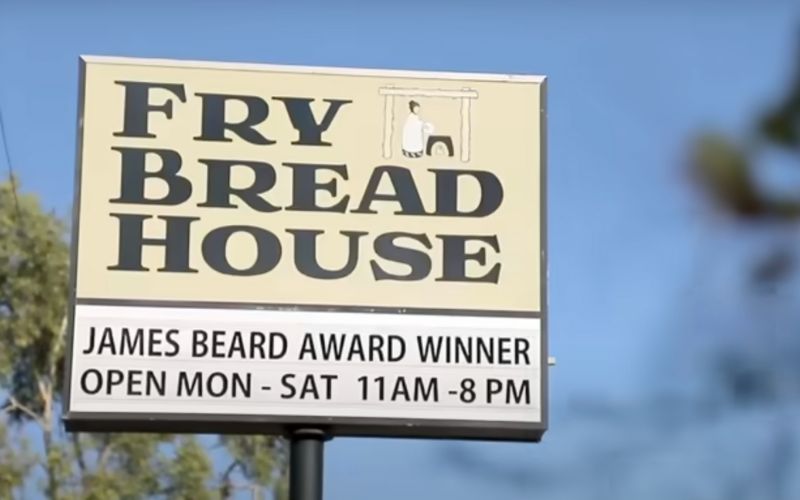
- Details
- By Kaili Berg
During the episode, viewers were treated to a showcase of the Fry Bread House’s culinary treasures. Fieri indulged in the flavors of the Native Taco, a beloved specialty featuring fry bread filled with savory red chili beef and mashed pinto beans. The episode also featured Chim stew, served alongside the restaurant’s signature fry bread.
“In every Native American restaurant, the food has just tons of flavor. It shows cultural education through food, and that’s powerful,” Fieri said during the episode.
Established in October 1992 by Cecilia Miller, a citizen of the Tohono O’odham Nation, Fry Bread House was the first Native American restaurant to receive the prestigious James Beard Award in 2012 as an American classic.
Following Cecilia's passing in 2020, the restaurant transitioned into the hands of her children, Jennifer Miller and Richard Perry. They took on the responsibility of carrying forward Cecilia’s legacy, ensuring that her vision and culinary heritage remained alive and thriving.
“As a family, we just decided that we were going to continue to keep it going. She had no idea that her food was going to have the appeal to a wide array of people,” said Miller, reflecting on her mother’s culinary journey during the episode.
The Tohono O’odham people are known throughout the Southwest for their Red Chili Beef, large hand-stretched flour tortillas (chumuth), and frybread (popovers), as well as basket-making and various other skills and trades.
According to The Fry Bread House, Cecelia felt it was important to stick with foods that were known to her and her culture. This is why she maintained frybread and red chili beef on the menu rather than trying to incorporate native cuisine from other tribal communities and cultures.
Fry bread holds a significant place in Native American culture, symbolizing the resilience and resourcefulness of its people. When Native Americans were forced to relocate to reservations, they were given rations of flour, sugar, salt, and lard by the government. With limited resources and unfamiliar ingredients, they ingeniously combined these to create fry bread, a testament to their ability to adapt and survive.
“Getting the James Beard Award is amazing, now getting the chance to share with the world this amazing culture and heritage, is a job well done,” said Fieri.
More Stories Like This
Zuni Youth Enrichment Project Takes Top Emerging Artist Apprentices to Phoenix for Artistic Exploration and Cultural ImmersionFrom Dishwasher to Award-Winning Chef: Laguna Pueblo's Josh Aragon Serves Up Albuquerque's Best Green Chile Stew
Rob Reiner's Final Work as Producer Appears to Address MMIP Crisis
Vision Maker Media Honors MacDonald Siblings With 2025 Frank Blythe Award
First Tribally Owned Gallery in Tulsa Debuts ‘Mvskokvlke: Road of Strength’
Help us defend tribal sovereignty.
At Native News Online, our mission is rooted in telling the stories that strengthen sovereignty and uplift Indigenous voices — not just at year’s end, but every single day.
Because of your generosity last year, we were able to keep our reporters on the ground in tribal communities, at national gatherings and in the halls of Congress — covering the issues that matter most to Indian Country: sovereignty, culture, education, health and economic opportunity.
That support sustained us through a tough year in 2025. Now, as we look to the year ahead, we need your help right now to ensure warrior journalism remains strong — reporting that defends tribal sovereignty, amplifies Native truth, and holds power accountable.
 The stakes couldn't be higher. Your support keeps Native voices heard, Native stories told and Native sovereignty defended.
The stakes couldn't be higher. Your support keeps Native voices heard, Native stories told and Native sovereignty defended.
Stand with Warrior Journalism today.
Levi Rickert (Potawatomi), Editor & Publisher


